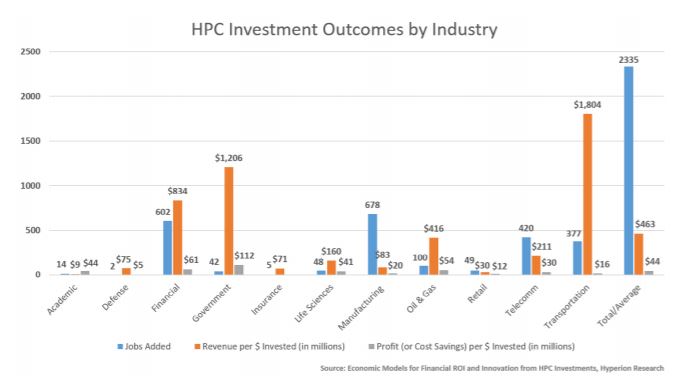
In the age of big data, more and more enterprises rely on HPC resources to tackle the massive amounts of information that they’re processing. Before they can analyze, synthesize and manipulate data to deduce meaningful conclusions, IT departments must focus on collecting, processing and storing the data. However, the time and resources necessary to run and maintain hardware and data center infrastructure distract from the meaningful interpretation that actually drives the desired outcomes.
Innovative HPC vendors provide maintenance, support and management services to help organizations implement, update, troubleshoot and scale their HPC systems. When an HPC managed services provider handles infrastructure management and maintenance, there’s more time for organizations to focus on their core business. Support and monitoring services also generally include a 24/7 manned network to protect equipment and promote optimal performance at all times. What’s more, outsourcing computing storage and network infrastructure can eliminate the overhead of facilities management staff, as well as cost-effectively refresh HPC resources and support business growth.
With a powerful ability to process massive amounts of data at more profitable speeds and simplify complex business procedures, HPC services are increasingly attractive to a wide array of organizations across varying industries. HPC managed services can especially reduce the stress of fully in-house HPC workloads and eliminate cost and management concerns.
Government entities, defense agencies, academic institutions, energy companies and utilities organizations are among the verticals expected to continue adopting HPC systems, according to the latest market report from Grand View Research. The report further indicated that increased demand for advanced services, software and solutions will drive strong market growth in upcoming years. The predictions propose that the HPC market will expand at a compound annual growth rate of 7.2% from 2018 to 2025, steadily increasing from a global market size valued at $34.62 billion in 2017.
More specifically, the services segment accounted for 10% of the market share in 2017 and is expected to expand at a CAGR of more than 4% from 2018 to 2025. The report also noted that support and maintenance solutions especially drive demand in the segment, although design, consulting, integration and deployment services are also available.
As HPC services continue to expand, organizations with a strong need to process, store and analyze information can partner with HPC vendors to support their IT departments and augment performance.
The benefits of HPC managed services for business growth
Business leaders and IT professionals enable their companies with advanced computing tools to drive informed decisions, reveal meaningful insight, explore unknown territories and update business models. In many cases, HPC managed services is necessary for organizations to stay ahead of industry changes and developments.
The benefits of partnering with an HPC services provider stems from eliminating the distractions of running an in-house data center, which, in turn, allows IT departments to optimize their processes, assets and infrastructure to scale. Employees can reveal necessary insight with greater speed, allowing leaders to implement strategic changes that drive growth and propel the organization ahead of their competition.
No longer limited to large enterprises and niche verticals, HPC systems can also help small and midsize organizations enhance their competitive edge, and cost-effective managed services can make it a more financially feasible endeavor. End-to-end solutions further facilitate HPC opportunities for companies that lack the robust IT resources and expertise needed to build clusters and implement HPC processes from the beginning.
Regardless of the size and scope of a particular company, investing in HPC can support expansion efforts by generating substantial returns. Ongoing research funded by the U.S. Department of Energy Office of Science, Office of Advanced Scientific Computing Research and the National Nuclear Security Administration reported an average revenue increase of $463 per dollar invested in HPC. Each invested dollar also yields an average $44 increase in profit (or cost savings).
Furthermore, HPC managed services can prevent old servers, outdated technology and legacy systems from slowing organizations down. Most providers will continually update HPC systems with the latest components, such as servers, software, storage, equipment and security. A service-based HPC configuration also allows companies to move away from the steep costs of owning equipment. Instead, organizations can lease the latest equipment and devices from the service provider, which makes it possible for companies to refresh their existing HPC resources and continuously update their technology.
When monitoring and security measures are in place, HPC managed services protect organizations from costly downtime by identifying potential faults or dangers throughout the day. If problems do occur, the provider can also work to solve the issue so IT employees can continue focusing on other responsibilities.
Ultimately, HPC managed services help organizations operate efficiently with greater speed and agility. With maximized time and resources, forward progression ensues naturally.

George Milner is a Solutions Architect for Samsung SDS' HPC Managed Services.
- Four Big IT Transformations for Enterprise Agility
- An Agile Approach, the Core of Corporate DT for Working Culture Innovation
- Digital ESG, a Critical Success Factor for ESG
- Conversational AI War Begins. Who Will Be the Winner?
- What Is Matter, the New Smart Home Standard?
- 2023 Forecast for Technology Trends

